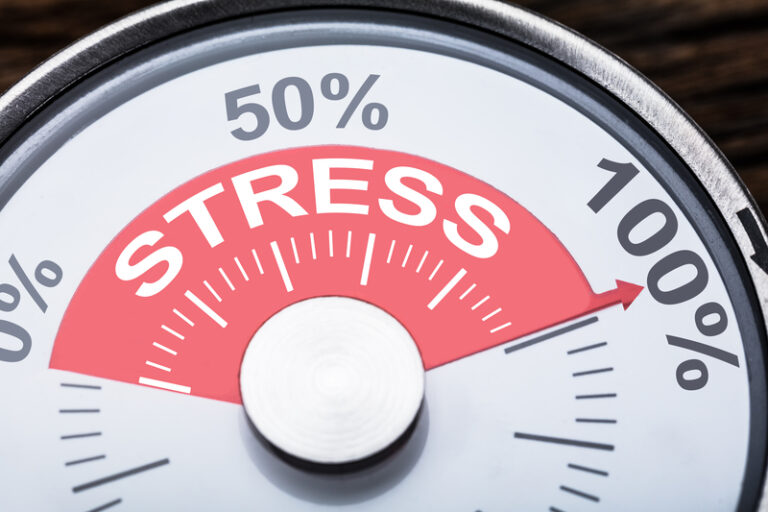As a long-time health practitioner, it is impossible to ignore the profound effects of stress on every symptom a patient may have. Sometimes if I don’t know where to start with a complex case, I’ll simply calm them down. Once the stress levels come down, other pieces of the health puzzle start to emerge. I recently commented to an acupuncturist colleague of mine: “I’d rather see a patient eating crap and happy, then a patient with an impeccable diet and loads of stress.” She emphatically agreed. Of course, it’s not that simple–a poor diet can dramatically affect every aspect of our health. But if health is truly what we are after, then we must learn to manage stress as carefully as we manage our diet and exercise.
What does stress do to us physiologically? Our adrenal glands–tiny glands that sit on top of our kidneys—produce powerful hormones critical to managing our energy, blood sugar, blood pressure, sleep rhythms, and stress. The adrenals are part of a vital biofeedback loop called the HPA axis that involves the brain and manages our minute-by-minute daily responses to stress–from a virus we are battling, to an argument with our spouse, to running late to work. When we are stressed, our adrenals produce extra cortisol, a hormone that activates the body’s stress responses, increasing blood pressure, releasing blood sugar, and acting as an anti-inflammatory.
Under normal circumstances, our adrenal glands are designed to handle these stresses. However, if a person is under constant stress for an extended period, this will eventually wear down the adrenals, causing excesses and then deficiencies of cortisol, with health effects ranging from high blood pressure, diabetes and weight gain to insomnia and chronic fatigue. Also, under chronic stress conditions, cortisol turns from anti-inflammatory to inflammatory, contributing to states of chronic pain.
As an acupuncturist, I have long noted the remarkable effects on stress and anxiety from regular acupuncture. Numerous clinical studies have examined this connection, including a fascinating 2013 study conducted at Georgetown University. Researchers exposed rats to winter-like temperatures for an hour a day, followed by needling an acupuncture point known to reduce stress and anxiety. They then measured blood levels of hormones such as cortisol and adrenaline that influence the body’s reaction to stress. They discovered that acupuncture blocks the release of these hormones that lead to chronic, stress-induced states.
We tend to shrug off chronic stress as an inevitable part of life—but it doesn’t have to be! At Vital Health we help people find clarity regarding the root causes of their health challenges, providing step-by-step guidance on what to do to restore health naturally.
©2021 Darcy Greenwald, M.S.O.M., L.Ac. and Vital Health







